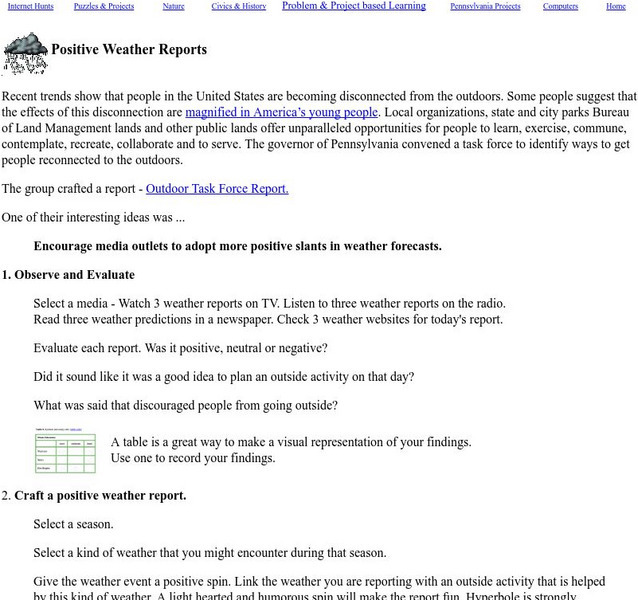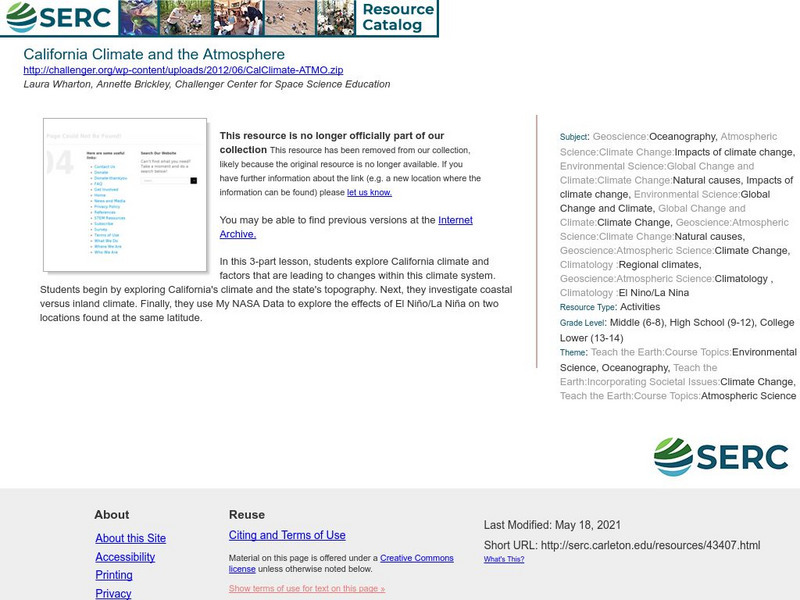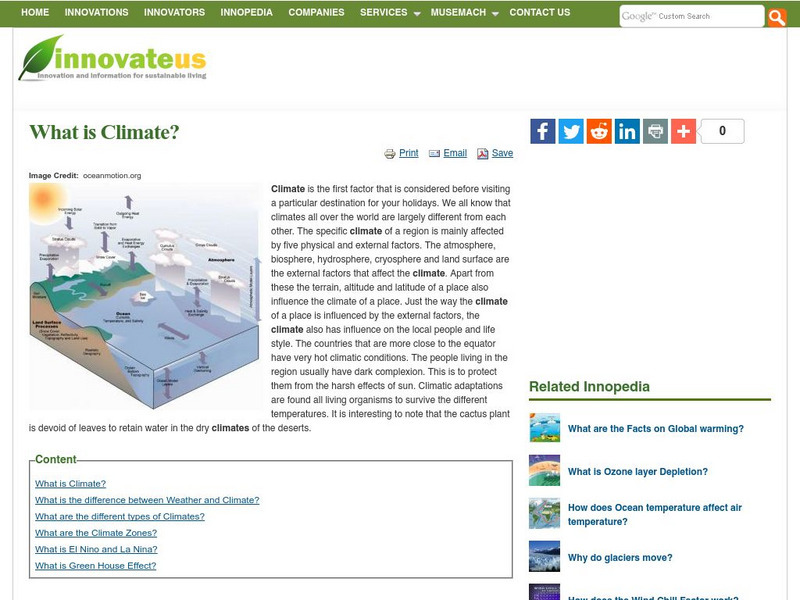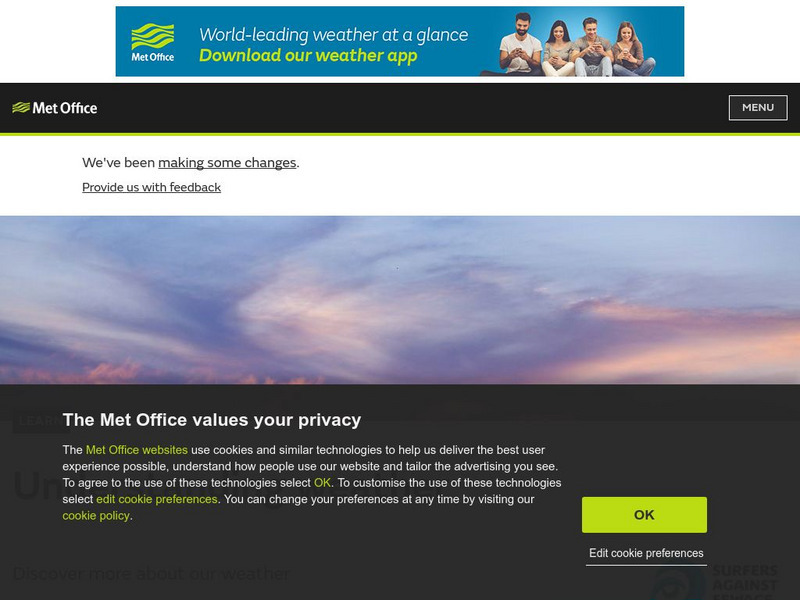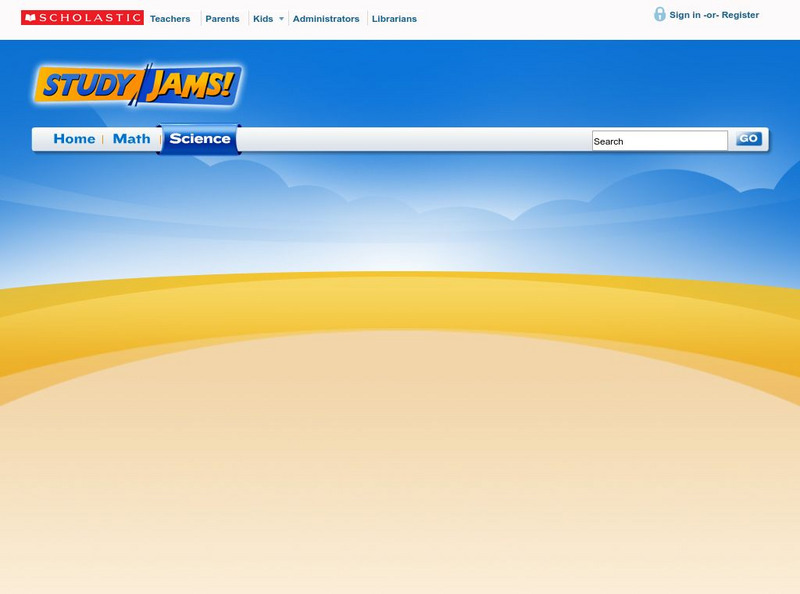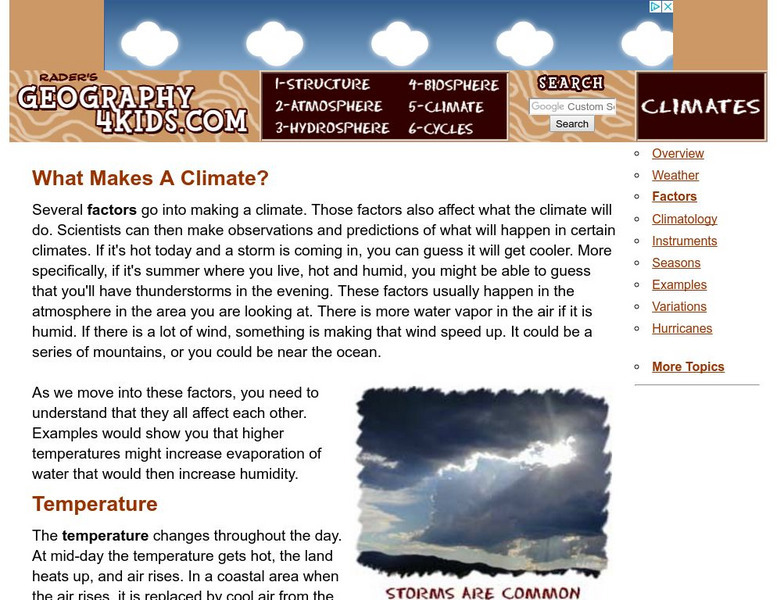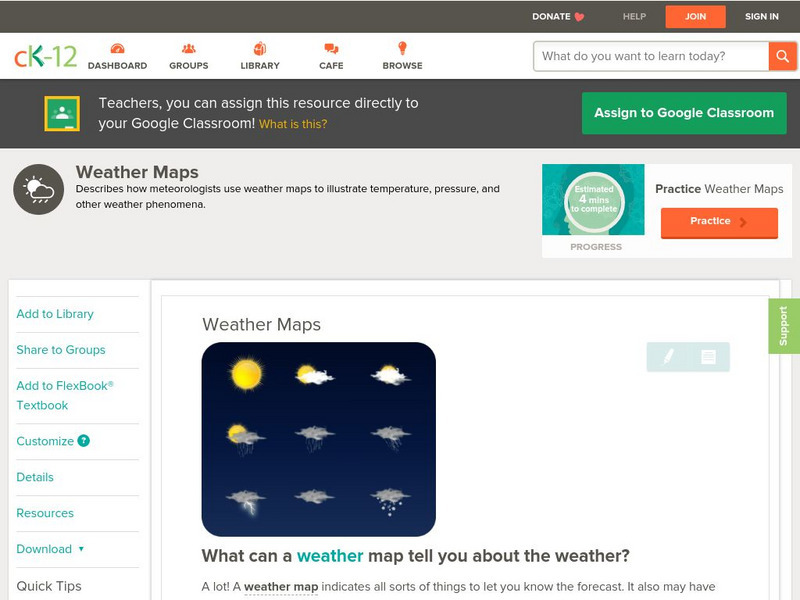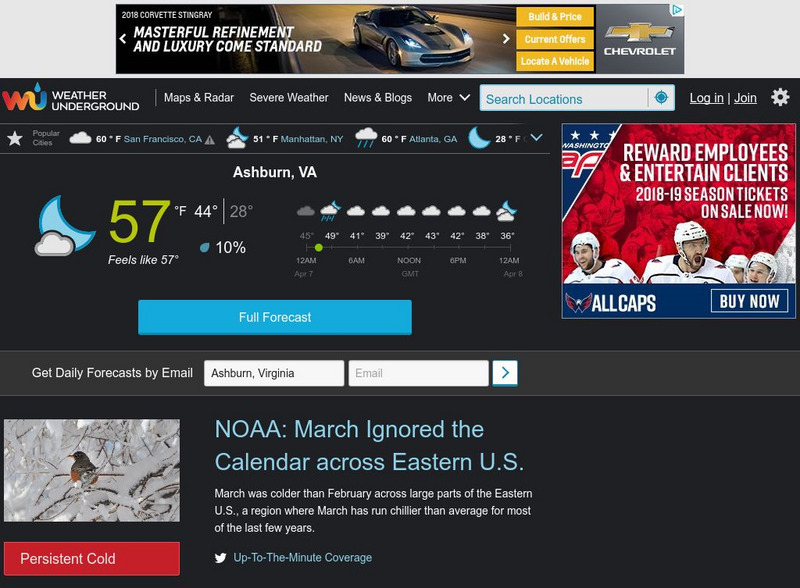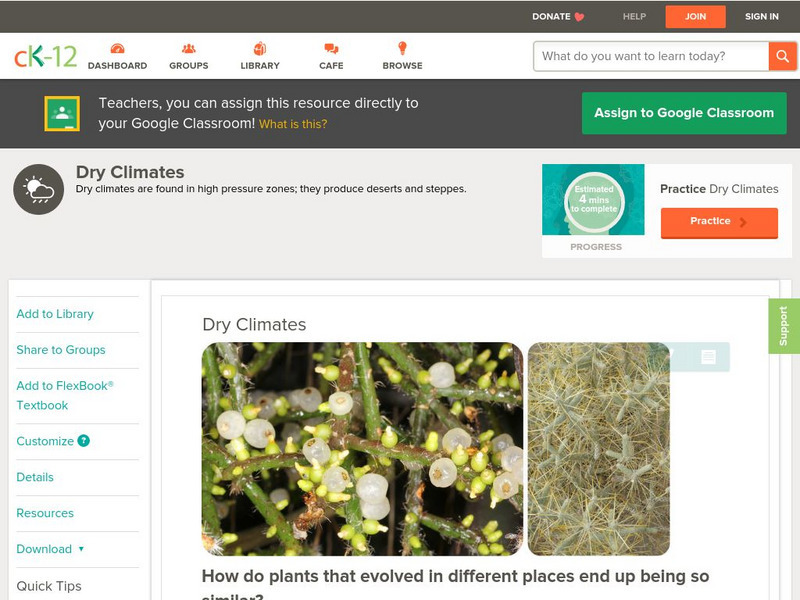American Museum of Natural History
American Museum of Natural History: Make Your Own Weather Station
Students can plan and carry out investigations of local weather patterns by building their own weather stations to collect observations of various weather conditions: rainfall, wind direction, and air pressure.
OpenSciEd
Open Sci Ed: 6.3 Weather, Climate & Water Cycling
Why does a lot of hail, rain, or snow fall at some times and not others? This unit contains four separate lesson sets built around answering this question. In the first two lesson sets, students explain small-scale storms. In the third...
Next.cc
Next: Climate
Complete these three activities to learn about climate, severe weather, and global warming. Includes links to explore related material.
Science Education Resource Center at Carleton College
Serc: Recording the Weather Around Us Using a Science Notebook in Second Grade
In this investigation, young scholars will observe the weather and use weather terminology to document data in a science notebook. They will continue to observe and record their weather data throughout the year, looking for changes due...
Geographypods
Geographypods: Weather and Climate Graphing It!
Explores the difference between weather and climate and how they are measured. Students will complete activities and construct a climate graph from raw data. They will also learn about the physical structure of the rainforest, its...
Weather Wiz Kids
Weather Wiz Kids: Climate
This page gives a complete explanation of climate. Learn the factors that affect the climate.
Cynthia J. O'Hora
Mrs. O's House: Positive Weather Reports
After reviewing local weather reports, students will think about whether the presentation of the reports is driving folks to not participate in outdoor activities. The class will create new weather reports that will turn negative weather...
Science Education Resource Center at Carleton College
Serc: California Climate and the Atmosphere
In this 3-part lesson plan, young scholars explore California climate and factors that are leading to changes within this climate system. Students begin by exploring California's climate and the state's topography. Next, they investigate...
Other
Innovate Us: What Is Climate?
Climate is the first factor that is considered before visiting a particular destination for your holidays. We all know that climates all over the world are largely different from each other. The specific climate of a region is mainly...
University Corporation for Atmospheric Research
Ucar: Differences Between Climate and Weather
For this activity, students collect weather data over several days or weeks, graph temperature data, and compare the temperature data collected with averaged climate data where they live.
Scholastic
Scholastic: Study Jams! Science: Weather & Climate
A video and a short multiple-choice quiz on the topic of weather and climate, and the difference between them.
Ministry of Education, Sports & Culture (Samoa) Government
Mesc: Samoa School Net: Forces to Make Weather: Weather & Water Cycle
Explains three forces of nature and how they impact the weather. These include infrared rays from the sun, differences in air pressure, and wind flow when hot and cold air masses meet. Supported by lots of visuals.
Sophia Learning
Sophia: Oceans and Global Climate
This lesson will describe the effect that oceans have on the global climate.
Geography 4 kids
Geography4 kids.com: More Effects on Temperature
There are several factors that affect air temperature as highlighted in this text.
Geography 4 kids
Geography4 kids.com: But Is It Weather?
Discover the significance of studying weather as well as climate with this resource and the videos it presents from NASA.
Geography 4 kids
Geography4 kids.com: What Makes a Climate?
Find out what factors contribute towards a climate.
E-learning for Kids
E Learning for Kids: Antarctica: Penguins: What Are the Different Aspects of the Weather?
For this lesson, students learn about the different types of weather and the factors that impact them, including air pressure, humidity, sun and wind.
CK-12 Foundation
Ck 12: Earth Science: Weather Maps
[Free Registration/Login may be required to access all resource tools.] How meteorologists create and read weather maps.
Other
The Weather Company: The Weather Underground
Source of weather maps, forecasts, images, and data for the world. Maps include temperature, radar, visibility, wind, heat index, wind chill, humidity, and dew point.
NASA
Climate Kids: Climate Change Trivia
Fun website for kids on earth science presents trivia game in which students can test their knowledge on what they have learned about climate.
Other
Niwa: Common Climate and Weather Terms
A great place to find a definition to terms used to describe climate change and meteorology. This site contains a glossary of common terms for both climate and weather.
CK-12 Foundation
Ck 12: Earth Science: Dry Climates
[Free Registration/Login may be required to access all resource tools.] Describes dry climates such as the desert and steppe.
CK-12 Foundation
Ck 12: Earth Science: Heat Budget of Planet Earth
[Free Registration/Login may be required to access all resource tools.] The balance of heat entering and exiting Earth's atmosphere.






